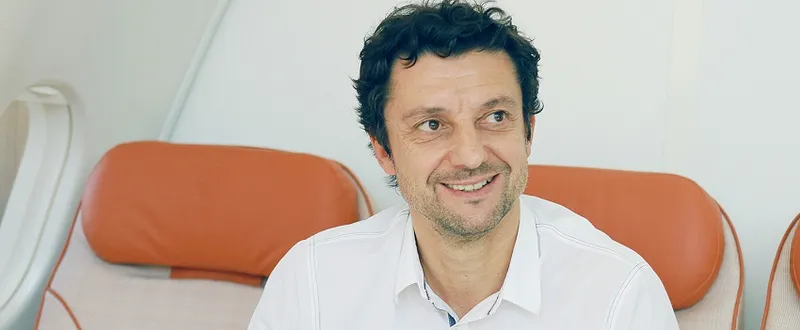4 Bengaluru startups will work with Airbus to shape the future of aerospace
Airbus offers commercial contracts to Neewee, eFlight, Symbosim and Stelae Technologies, says Indian startups ready to forge global partnerships.
Global aircraft manufacturer Airbus has pulled off what other corporate accelerators in the manufacturing industry have not been able to.
Four startups from Bengaluru, chosen for the second season of Airbus BizLab accelerator, have been selected for long-term commercial engagements with the aircraft manufacturer. The startups that won the commercial deals are Neewee, eFlight, Symbosim and Stelae Technologies.

In January, Bizlab had selected six Indian companies for the second season of its six-month programme in Bengaluru. BizLab offers the selected startups access to Airbus coaches, business and technical experts, mentors in various domains and free hosting.
Bruno Gutierres, Head of BizLab, says: “Finding these startups that understand the digital needs of Airbus has been a real pleasure in the second season of the accelerator programme.” He adds the challenge now will be to find a similar set of startups in applications that will be invited for the third cohort shortly.
Airbus has completed two seasons of mentoring in Toulouse, Hamburg and Bengaluru. The third season is under way in Toulouse and Hamburg.
Airbus C-Suite leaders recently met over 12 startups in Hamburg to forge commercial partnerships. They also hosted 32 startups to deliver a three-minute elevator pitch to Airbus leaders.
“We also did this to showcase the ideas that BizLabs attracted in the startup world,” Bruno says.
He adds most startups participating in the programme were in the digital space and would help Airbus in supply chain management and analytics. Not surprising since IDC predicts the Big Data Market will be as big as $203 billion this year.
Neewee was chosen because its software plugs into the ERP and pulls out information of the thousands of parts that go into procurement management. The software simplifies sourcing and creates a plan for assembling the final product.
Harsimrat Bhasin, Co-Founder and COO of Neewee, says: “It took us two years to build the product and five pilots to make it commercially ready and scalable.” The company’s software will be used in one of Airbus assembly plants in Europe.
Stelae Technologies, co-founded by Aruna Schwarz, pulls out PDF documents and all non-readable legacy text files such as aircraft manuals and presents them in a readable format for new digital technologies.
Aruna says: “Every organisation has millions of documents that are important and are lying there in an unreadable format. They are pulled out manually before being presented to the management.”
Stelae’s tech plugs into any on-premise and cloud solution to pull out documents; these also include defence aircraft modules stored 20 years ago.
Stelae is signing up with TechMahindra, which will use the product in its suite of services given to banking and industrial clients.
Meanwhile, eFlight, a full trip support service for business aviation, is signing up with NavBlue, a subsidiary of Airbus, to plan chartered flights for anyone who owns private jets and wants to travel across the world. Their software service and plan packages make eFlight five times cheaper than competition.
Prem, Co-Founder and Head of Business Development at eFlight, says, “In general aviation or in private jets, the pilot plans everything from the hotel stay to ground handling charges. It is a cash-intensive business and we are doing away with software that gives a single plan and invoice to the pilot,”
Airbus has also tied up with Symbosim, which uses new mathematical techniques to understand composites that get built on the plane and thereby reduce R&D costs. The only plane that has more than 53 percent composites is the A350, and it is the most fuel-efficient and lightest plane in the world. However, traditional techniques – mathematical tools mostly offered by Dassault Systems – to discover composites increased R&D costs by 400 percent. Symbosim has flipped the paradigm around by using new mathematical techniques to reduce time to design composites.
Airbus is excited about the quality coming out of India.
“India has many experienced people who have become startup entrepreneurs. We would love to work with such startups in the next batch,” Bruno says.
Aided by startups like these, Airbus hopes to build and define the future of aviation.







